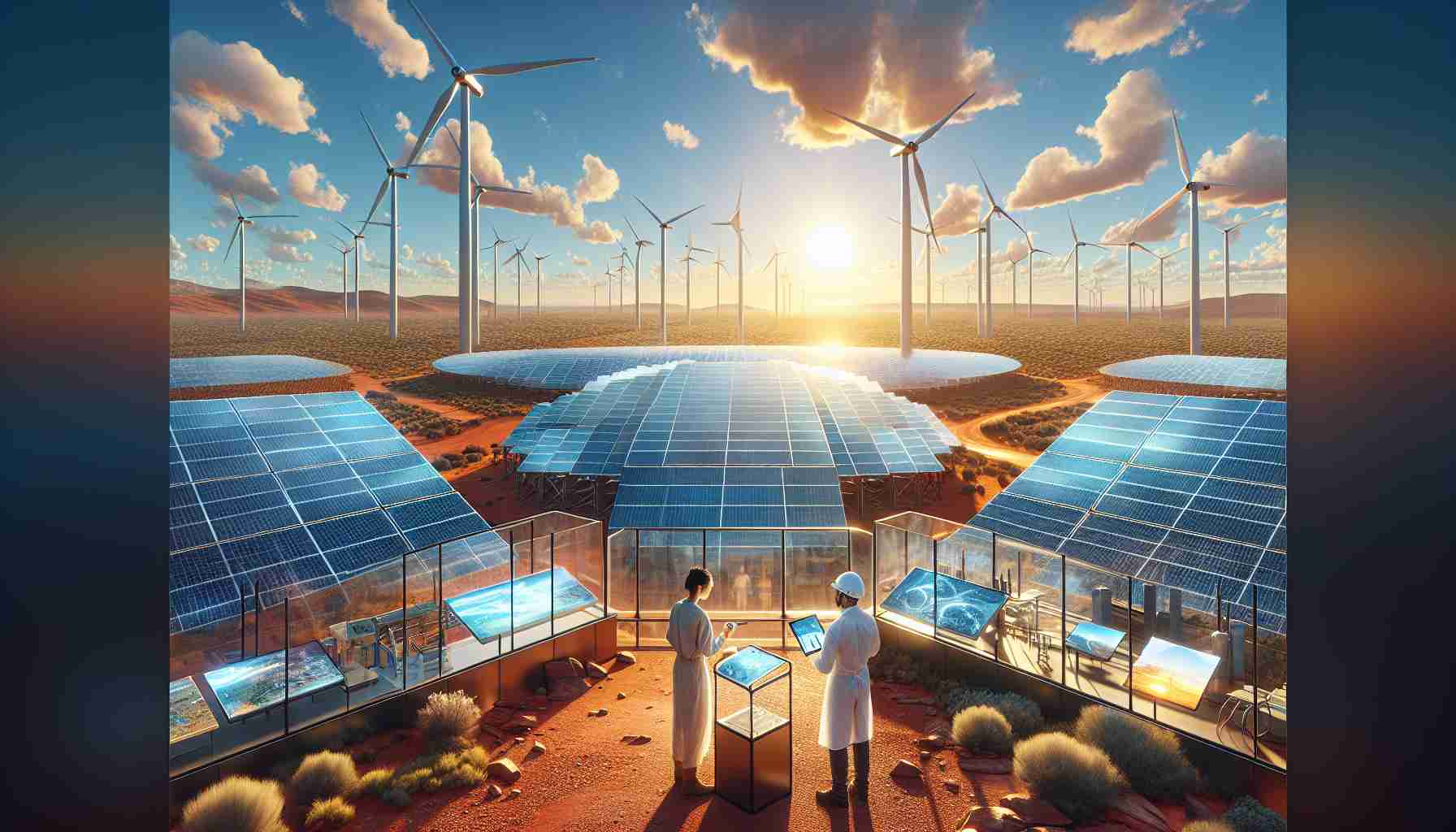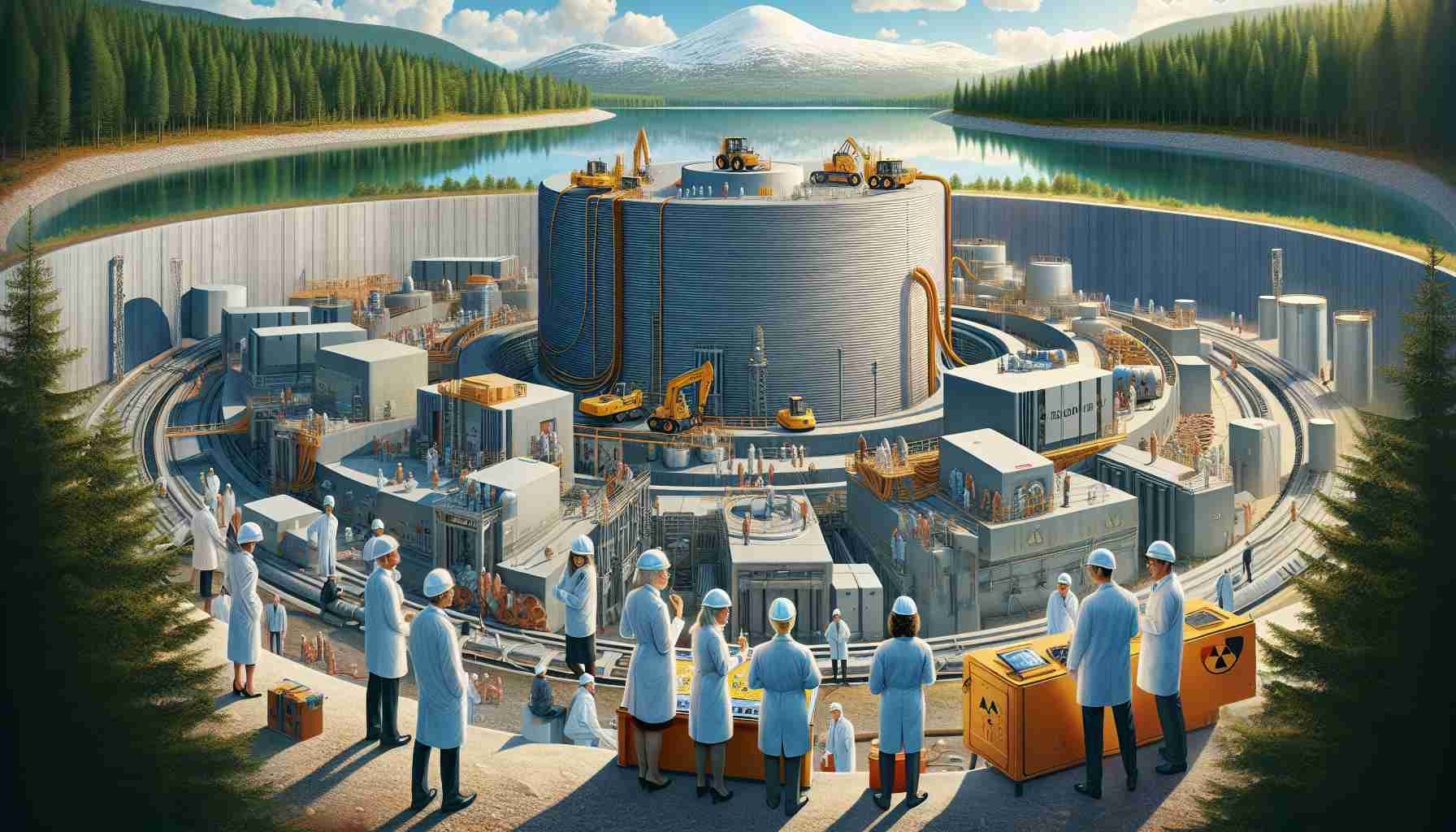- Africa’s energy demands are set to rise significantly due to population growth and economic expansion.
- Current energy consumption relies heavily on fossil fuels, with renewables making up only 2% of the mix.
- Nuclear power is being explored for its potential to provide consistent energy and reduce carbon emissions.
- Countries like Egypt are pioneering nuclear developments as a step towards energy independence.
- The transition to nuclear presents challenges such as infrastructure needs and public safety concerns.
- Successful nuclear deployment could enhance economic resilience and job creation in Africa.
- Africa’s experience may inspire global innovation in balancing energy needs with sustainability.
Africa stands on the brink of an energy revolution, driven by the dual forces of a burgeoning population and rapid economic growth. With a population expected to reach a staggering 3.2 billion by 2066, Africa’s energy demands are set to soar, outpacing the current modest energy consumption derived from fossil fuels. While renewables like wind and solar offer promise, their intermittent nature hasn’t filled the gap, which leaves the continent exploring nuclear power as a potential game-changer.
Today’s energy landscape in Africa remains heavily dominated by oil, gas, and coal, with renewables comprising a mere 2% of the total mix. However, nuclear energy’s allure lies in its potential to deliver consistent power and dramatically cut carbon emissions—critical advantages as the world battles climate change. Countries such as Egypt are leading the charge in nuclear development, seeing it as a strategic move toward energy independence and environmental stewardship.
Despite its promise, the path to a nuclear-powered future is fraught with obstacles. Infrastructure development demands are high, and public skepticism about safety and waste disposal persists. Overcoming these challenges will require robust regulatory frameworks and public engagement efforts to nurture trust and acceptance.
The shift to nuclear energy is more than a mere technical transition; it signals a transformative vision for Africa’s future. By securing a stable and clean energy supply, Africa can foster economic resilience, create skilled jobs, and attract international investments. If successful, Africa’s nuclear journey could serve as a beacon for other regions grappling with their energy crises, demonstrating how innovative solutions can balance modern energy requirements with sustainable progress.
Embracing nuclear power isn’t just about filling an energy gap; it’s about shaping a sustainable and equitable future for an empowered continent. As Africa looks to this nuclear avenue, its journey might inspire a global rethink on how we power a rapidly changing world.
Africa’s Nuclear Power Dilemma: A Game-Changer or a Gamble?
Pros and Cons of Nuclear Energy in Africa
Pros:
1. Consistent Power Supply: Unlike solar and wind, nuclear energy offers a reliable and consistent energy output.
2. Low Carbon Emissions: Nuclear power produces minimal greenhouse gases, aligning with global climate goals.
3. Energy Independence: Countries like Egypt view nuclear energy as a path to reducing dependency on fossil fuel imports.
Cons:
1. High Initial Costs: Building nuclear power plants involves significant financial and infrastructural investments.
2. Safety Concerns: Public skepticism remains high due to past nuclear accidents and concerns over waste disposal.
3. Regulatory Challenges: Establishing a robust regulatory framework is essential to ensuring safety and trust.
Emerging Trends and Predictions
1. Increased Investments: As Africa’s demand for energy surges, we can expect increased investments in nuclear power infrastructure, heralding economic opportunities but also fiscal scrutiny.
2. Technological Innovations: Advances in nuclear technology, such as Small Modular Reactors (SMRs), may present cost-effective and scalable solutions suitable for African nations.
3. Global Partnerships: Africa is poised to engage in international collaborations, learning from established nuclear nations to bolster its own capabilities.
New Innovations in the Nuclear Sector
Innovations like Small Modular Reactors (SMRs) and improvements in safety protocols are gaining traction. These advancements aim to reduce costs, enhance safety, and minimize waste. SMRs, in particular, offer a compact and flexible option that might suit Africa’s varied geographic and infrastructural landscapes.
Market Analysis and Predictions
A shift towards nuclear power in Africa predicts not only energy sufficiency but also economic growth. The move may herald a new era of industrialization, with enhanced energy security fostering a conducive environment for industries. This growth can potentially attract international investors looking for stable and sustainable opportunities.
Key Questions and Answers
1. What are the potential economic impacts of adopting nuclear energy in Africa?
The adoption of nuclear energy could drive industrial growth, create skilled employment opportunities, and increase foreign investments. The consistent power supply can lead to reduced energy costs and stimulate sectors like manufacturing and technology.
2. How can Africa address the challenges of nuclear waste disposal and ensure public safety?
To address waste disposal concerns, Africa can invest in research and adopt innovations such as reusable and less-hazardous fuel technologies. Establishing transparent regulatory frameworks and engaging communities in safety initiatives will be crucial for building public trust.
3. Are there viable alternatives to nuclear energy that Africa should consider?
While nuclear energy presents a promising option, Africa should continue exploring a balanced mix of renewables such as solar, wind, and hydroelectric power. Utilizing a hybrid energy model can mitigate risks associated with over-reliance on a single energy source.
For more insights into energy developments and trends:
International Energy Agency
World Nuclear Association
The source of the article is from the blog girabetim.com.br













